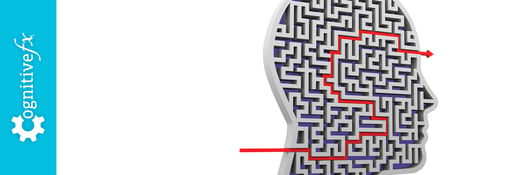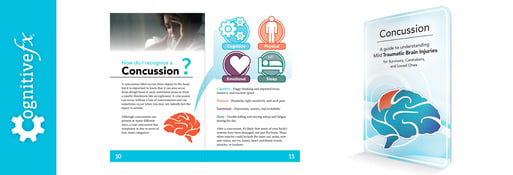What Causes Headaches?
Headaches can be a tricky symptom to address. They are often one of several symptoms that may present itself after a concussion or traumatic brain injury (TBI). On another hand, headaches are not a...
Published peer-reviewed research shows that Cognitive FX treatment leads to meaningful symptom reduction in post-concussion symptoms for 77% of study participants. Cognitive FX is the only PCS clinic with third-party validated treatment outcomes.
READ FULL STUDY
Currently, many doctors and other medical professionals tell their patients that the majority of people who have a concussion will recover in a short amount of time (under a month). However, new studies are showing that the risk for long-term symptoms is much higher than doctors and concussion specialists previously thought.
Before seeking treatment at Cognitive FX, the majority of our almost 1,000 patients struggled with their symptoms for years. We have treated patients who suffered needlessly from post-concussion symptoms for many decades. Among the oldest concussions we’ve treated was a concussion from 60 years ago.
Many of these patients had given up hope that recovery was possible. They saw their symptoms as a permanent part of their lives and futures. However, our research and patient improvement reports continue to prove that patients can drastically improve from their post-concussion symptoms.
So what should you do if you fall into this growing percentage of the population with long-term PCS? Below are the first steps you can take toward your recovery.
When you are looking at your symptoms, it is important to understand that the cause can be a variety of sources, including your injury, medication side-effects, or other health conditions. Keeping a “symptom journal” can shed light on which of your symptoms are being caused by your concussion. Take time to outline when each of your symptoms began, how you’ve progressed, and how you’ve digressed since your injury. This record will provide you and your treatment team with more clarity and guidance as you move forward in your recovery.
Other questions you may want to outline and answer in your symptom journal could include the following:
When seeking treatment for your concussion, it is essential that you look not only for a multidisciplinary team, but one that has a comprehensive understanding of the dysregulation that is happening in your brain. This team should have a unique plan focusing on seeing and treating all the areas of your brain that need to improve, not just your vision, memory, auditory processing, or a small set of symptoms alone. Seeking treatment from a team of specialists who can work together to target all the injured regions of your brain collectively is vital for the most effective recovery.
PCS doesn’t have to stop you from taking action and working hard to get better. You are not doomed to lie on a couch and hope that your symptoms will disappear. You can be the strongest advocate and facilitator of your own healing.
You can begin by being active in your daily life directly after your concussion. Be careful to not re-injure yourself, but don’t stop doing your exercises or therapies. Knowing when to work harder and when to take a break can be difficult. There is a fine line between pushing past the comfort zone into the growth zone and pushing yourself too far. (This is why it is helpful to use a multidisciplinary team to guide your recovery.) Our treatment approach is unique because we know both when and how to push you accurately and when to let you rest.
Overall, if you have been living with concussion symptoms for a long time, we encourage you to see that what you are working through has been caused by a real injury with real impacts on your life. There are many things you can do, and there is always hope, even if it takes time to find the right treatment team and plan for your specific injury. We know that it can take great effort to face life when symptoms are lasting way longer than you expected, and we want you to know that you are not alone. We urge you not to give up. With courage and commitment, you can improve and take your life back.
What are things you have done to find hope when dealing with long-term symptoms? What other things would you suggest doing or looking at if you are dealing with concussion symptoms for a long time? Please share your thoughts in a comment below!

The "Cognitive FX Team" is a collaborative ensemble of distinguished doctors, therapists, and practitioners. Our experts are pioneers in the field of neuroimaging and concussion treatment. With extensive experience and a strong commitment to patient care, our team excels in utilizing cutting-edge technologies, such as functional MRI (fMRI), to provide personalized diagnostic and treatment strategies. Our renowned professionals have published groundbreaking research, developed innovative neuroimaging biomarkers, and conducted thousands of individualized patient assessments. We take pride in our holistic approach to patient care, focusing on physical, cognitive, and emotional aspects of recovery. As leaders in the industry, the Cognitive FX Team is dedicated to advancing the science of concussion diagnosis and treatment to provide our patients with the highest level of care and support.

Headaches can be a tricky symptom to address. They are often one of several symptoms that may present itself after a concussion or traumatic brain injury (TBI). On another hand, headaches are not a...

A concussion is defined as “the result of the forceful motion of the head or impact causing a brief change in mental status (confusion, disorientation, or memory loss), with or without a loss of...

The brain loves taking the path of least resistance. This is true for blood flow and also for sending the communication signals in the brain when neurons are firing. Even a simple task requires...

If you're reading this, you've probably tried everything for the headaches that won't quit since your COVID infection. Maybe it's been three months. Maybe it's been two years. You've likely cycled...

Water. Something we don’t really think about until we are hit with a gigantic wave of what feels like an unquenchable thirst. We then spend the next few minutes chugging water like it is the last...

Over the last few monthsour teamhas been working on a new booklet to raise the level of awareness and education around concussions.
Published peer-reviewed research shows that Cognitive FX treatment leads to meaningful symptom reduction in post-concussion symptoms for 77% of study participants. Cognitive FX is the only PCS clinic with third-party validated treatment outcomes.
READ FULL STUDY